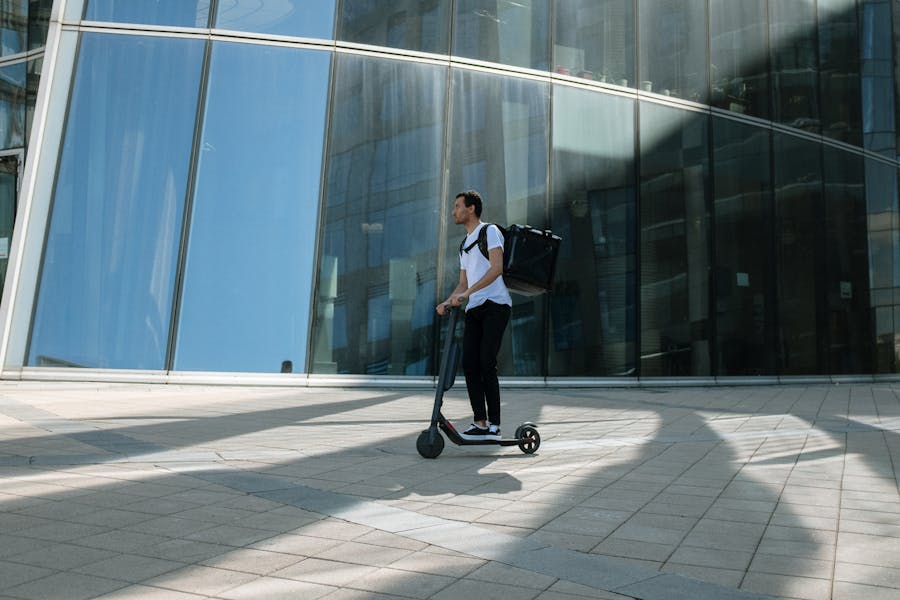Because they are convenient, reasonably priced, and environmentally friendly, electric scooters have grown in popularity as a form of transportation throughout Florida. Many riders, though, are not aware of the regulations controlling their use. Similar to bicycles, electric scooters are permitted on Florida highways, bike lanes, and some sidewalks, according to municipal laws. Although no specific license is needed, riders must abide by traffic laws, and there are age limitations and safety regulations, such as the requirement that kids wear helmets. It is crucial to comprehend Electric Scooter Laws in Florida. Ride safely and stay out of trouble while taking use of this cutting-edge, effective method of transportation. With this, we will define and explain the Electric Scooter Law in Florida.
Legal Definition of Electric Scooters in Florida
An electric scooter is defined by Florida Statute 316.003 as a vehicle that is solely propelled by an electric motor. It usually rides on no more than three wheels, has a handlebar, and a floorboard for standing. Electric scooters are not powered by fuel, in contrast to motorcycles or mopeds. They are intended for short-distance and slower travel. According to the regulations, these scooters must be unable to travel more than 20 miles per hour on level terrain. By ensuring that electric scooters are differentiated from other motorized vehicles, this legal definition offers a more precise foundation for their regulation and operation.
Classification of Electric Scooters in Florida
According to Florida law, users of electric scooters are entitled to the same rights and obligations as cyclists because they are categorized similarly to bicycles. Scooters are allowed on streets and bike lanes under this categorization, although they are typically not allowed on sidewalks unless specifically allowed by municipal laws. In contrast to motor vehicles, electric scooters can be operated lawfully without a driver’s license, registration, or insurance. Local governments still have the power to put extra limitations or guidelines on their use, though. The adoption of scooters as an alternate mode of transportation is facilitated by this flexible classification, which strikes a balance between rider accessibility and road safety regulations in Florida.
Rights of Electric Scooter Riders in Florida
Bicyclists and electric scooter users in Florida have comparable privileges. This implies that, absent certain restrictions imposed by local regulations, they are permitted to use shared walkways, bike lanes, and public highways. When it’s appropriate for their safety, especially on roadways with speed restrictions of 25 mph or below, riders are allowed to occupy a whole traffic lane. Additionally, they are entitled to expect drivers to share the road with them in a courteous manner and to yield when necessary. On the basis of municipal ordinances, riders may be permitted on sidewalks in certain cities. The goal of these rights is to encourage the equal and safe use of transportation infrastructure.
Duties of Electric Scooter Riders in Florida
In Florida, users of electric scooters must adhere to the same rules and obligations as bikers. This entails abiding by all traffic laws, signs, and signals. Riders must indicate turns and stops with hand signals and move in the same direction as oncoming traffic. It is required to yield to pedestrians, particularly at crosswalks. A red rear light or reflector and a white front light are essential for nighttime scooter use. Scooters must also be parked sensibly, avoiding obstructing driveways, walkways, and accessible ramps. By carrying these responsibilities, bikers and other road users can be safe and avoid legal repercussions.
Both riders and the general public must be aware of Florida’s electric scooter regulations in order to guarantee their safety, legality, and responsible use. As long as they abide by all traffic regulations, electric scooter users in Florida are granted the same rights and obligations as cyclists, including the ability to use bike lanes and roads. Riders are required to follow safety regulations, which include using lights at night, giving way to pedestrians, and properly signaling. Local governments may also enforce particular parking and sidewalk usage regulations. Riders may benefit from the efficiency and convenience of electric scooters while encouraging safer streets for everybody by abiding by these rules and regulations.

